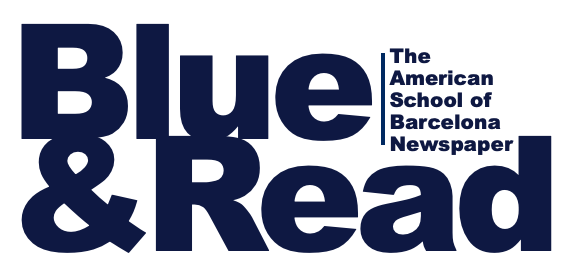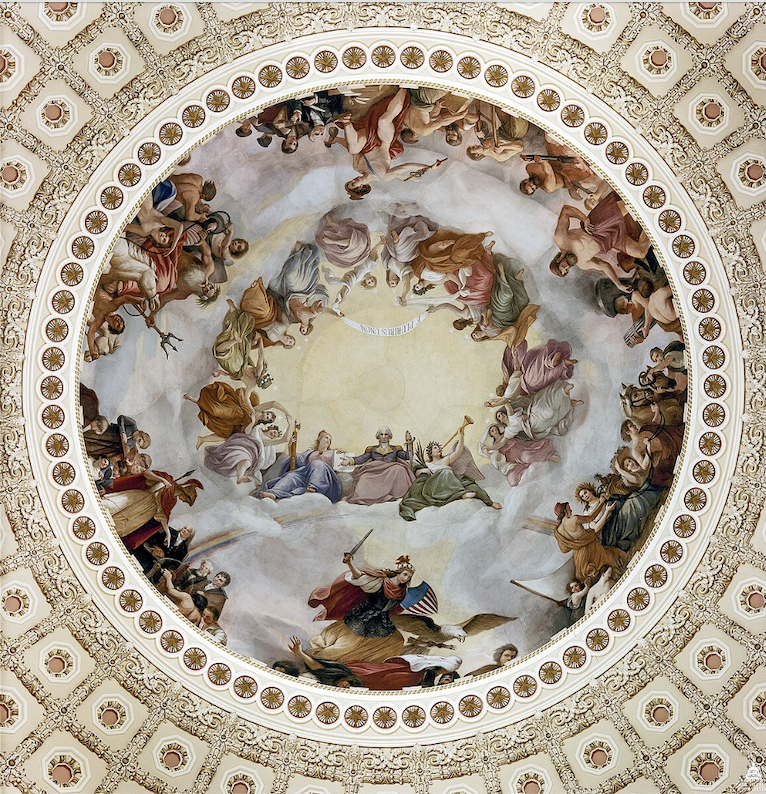I left the United States of America when I was nine years old. Before I left, I didn’t think much of the flags I saw. They hung from poles outside of every suburban home my family passed in the car. They were mounted on the walls of my grandparents’ home – right there next to the cross, good ol’ Jesus Christ, and Grace. They fluttered outside of the school of my home town where every morning the students recited the pledge, branded into their minds like a rancher’s mark of ownership.
It was ironically easy to forget the constancy of the stars and stripes. If it’s always there, it’s harder to acknowledge than to ignore. The flag represents a sort of shared unseen cultural mythology, passed along not by explicit oral tradition, but by an omnipresent banner – a mantle carrying the ideology of a nation. Just like the unquestioned mythology of ancient societies, American mythology stems from a desire for meaning.
The meaning of what?
The United States is a comparatively young country; it’s existed for less than three centuries. Yet it has constructed an elaborate and deep mythology.
One may protest that what American citizens believe in is not a myth, but rather patriotism and respect for one’s nation. This is true; what they believe does have veracity to it. There are no minotaurs or gorgons or faeries or brownies or sphinxes or chanaques in America. But all those myths share a common factor with American Mythology: they explain something we don’t understand.
These explanations are based on rudimentary observations of phenomena. Earthquakes are the minotaur roaming his labyrinth. Your child’s autistic because they’re a changeling replaced by faeries. There’s a drought because Tlaloc is unhappy with the lack of recent human sacrifices. And in turn, the flag explains something. It explains why a country that’s only existed for two hundred and fifty odd years has positioned itself as the center of Earth.
American Civil Religion denotes the unique brand of patriotism, nationalism, Protestant Christianity, and folklore present in the US that has formed a kind of religion characterized by a principal devotion to “One Nation Under God.”
The Christian God is still at the center of American Civil Religion, but it is also inexorably tied to American exceptionalism. The sacred texts of the religion are the Declaration of Independence and the Constitution, the prophets the Founding Fathers, and its holy grounds the Capitol and the White House. Thousands make a pilgrimage yearly to these sites and revere the scriptures they contain. All across the country every day, a prayer is led where allegiance is pledged to the Holy Land each patriot calls home. This zealotry is treated with the same familiarity as saying grace or receiving communion.
It’s impossible not to note the resemblance between political speeches and impassioned sermons. The use of religious language within American Policy has always been present but has increased substantially in the past century. Dogmatic vocabulary appeals to a voter base yearning for a bygone age. Like the ancient Greeks who venerated the tales of Mycenae, Americans revere the myths of their revolution, their founding fathers, and their pilgrimage to the Holy Land of North America. Similar to the Trojan War or the Odyssey, these American Myths have truth to them, but have changed and evolved over time. A war against oppressive taxation between two sides, both led by wealthy landowners, morphed into a battle for freedom, liberty, and God himself.
Among civilly religious Americans, the United States is seen as a shining castle on a hill, a bastion of freedom. Its role is to share its prosperity and ideals with the rest of the world. But the civilly religious encounter an issue here. Besides vague dogmas of liberty, Christianity, and freedom, the immaturity of the country provides an absence of significant antiquity or embedded culture. There is no rallying point for their tenets to orbit around, so they must craft their own mythology out of patriotism, stitched together with threads of faith.
This is the quest for meaning that Americans search for. Mythology has found a new use. The practical and kinetic questions of the past have been answered with the scalpel of empiricism. What is now left are the broad and fundamental natures of human existence – an existence that, to the civilly religious, is intrinsically linked to their country.
Since the disciples were young, the flag has always been there. Like me before I moved out of the country, they never questioned its presence. They were taught in school that the great Founding Fathers created the pristine civilization they live in today. In church, they were taught that the land they stood on was God’s dominion – specifically chosen for them to manifest their destiny. So when they inevitably start looking for an answer on how to live, they turn to what’s always been whispering into their ear. Quiet enough to never be noticed, but potent enough to congregate a following the size of a nation.
They turn to the flag and begin a pledge that’s now a prayer.


wow this is so funny i’m so jealous of the people who got to read it before it was published, i wonder what the catholic church thinks of being american